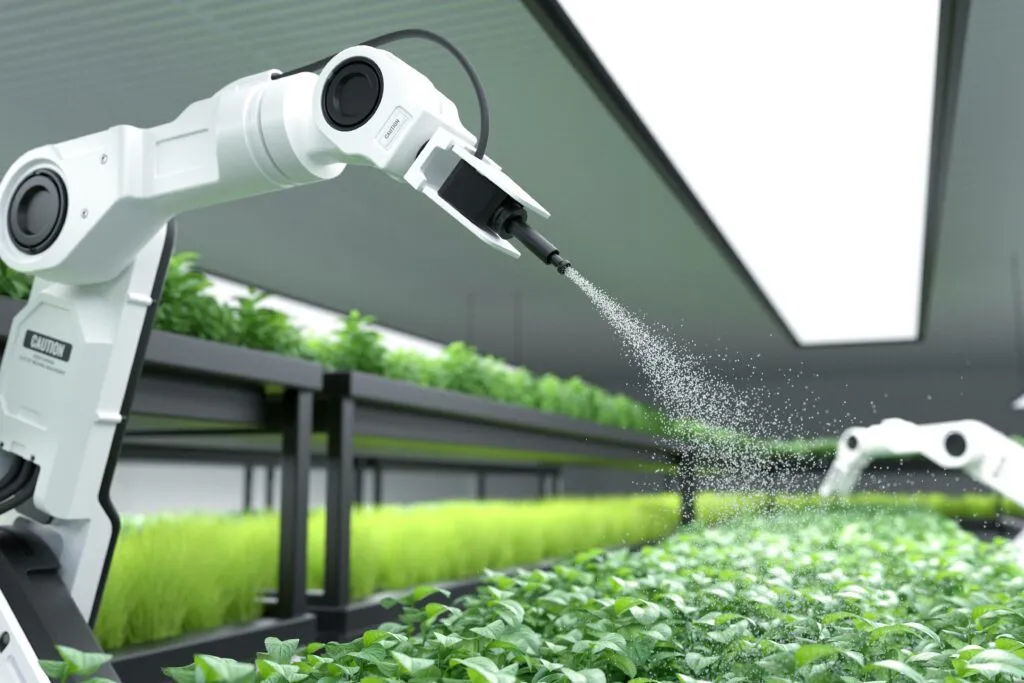In recent years, the agricultural industry has undergone a profound transformation driven by technological advancements. From precision farming and automation to data analytics and artificial intelligence, technology has revolutionized the way we grow, harvest, and manage crops. In this blog post, we will explore the various ways in which technology is impacting modern farming and shaping the future of agriculture.
Precision Farming:
Precision farming, also known as precision agriculture or smart farming, involves the use of advanced technologies such as GPS, drones, sensors, and data analytics to optimize various aspects of crop production. By precisely monitoring soil conditions, weather patterns, and crop health, farmers can make data-driven decisions to maximize yields while minimizing inputs such as water, fertilizers, and pesticides. Precision farming techniques enable farmers to tailor their farming practices to specific field conditions, resulting in increased efficiency, productivity, and sustainability.
Automation and Robotics:
Automation and robotics are increasingly being used in modern farming operations to streamline labor-intensive tasks such as planting, harvesting, and weed control. Autonomous tractors equipped with GPS and sensors can precisely navigate fields and perform tasks such as plowing, seeding, and spraying with minimal human intervention. Robotic harvesters equipped with computer vision and machine learning algorithms can efficiently harvest crops such as fruits and vegetables, reducing labor costs and improving efficiency. By automating repetitive tasks, farmers can save time and labor, reduce human error, and improve overall productivity.
Data Analytics and Artificial Intelligence:
Data analytics and artificial intelligence (AI) technologies are revolutionizing the way farmers manage their operations and make decisions. By analyzing large volumes of data collected from sensors, drones, satellites, and other sources, farmers can gain valuable insights into crop performance, soil health, pest and disease outbreaks, and weather patterns. AI-powered algorithms can analyze this data in real-time to provide actionable recommendations for optimizing planting schedules, irrigation management, pest control, and crop rotation. By harnessing the power of data and AI, farmers can improve decision-making, increase yields, and reduce environmental impact.
Internet of Things (IoT) and Sensor Technology:
The Internet of Things (IoT) and sensor technology are enabling farmers to monitor and manage their farms remotely in real-time. IoT devices such as soil moisture sensors, weather stations, and crop monitoring systems can collect data on various environmental factors and transmit it wirelessly to a central database or mobile application. Farmers can access this data from anywhere using their smartphones or computers, allowing them to make timely decisions and take proactive measures to optimize crop growth and protect against environmental risks. IoT technology also enables farmers to remotely control irrigation systems, monitor equipment performance, and track livestock, improving efficiency and productivity.
Blockchain and Supply Chain Management:
Blockchain technology is revolutionizing supply chain management in the agricultural industry, enabling transparent and secure tracking of products from farm to fork. By recording transactions on a decentralized and immutable ledger, blockchain technology provides a tamper-proof record of each step in the supply chain, including production, processing, packaging, transportation, and distribution. This enables stakeholders such as farmers, processors, distributors, retailers, and consumers to trace the origin and journey of agricultural products, ensuring transparency, authenticity, and food safety. Blockchain technology also facilitates smart contracts and payments, streamlining transactions and reducing transaction costs.
Conclusion:
Technology is transforming modern farming in profound ways, enabling farmers to optimize productivity, reduce inputs, and improve sustainability. From precision farming and automation to data analytics and blockchain, technological innovations are revolutionizing every aspect of the agricultural supply chain. By embracing these technologies, farmers can overcome challenges such as labor shortages, climate change, and resource constraints, while meeting the growing demand for safe, nutritious, and sustainable food. As we look to the future, continued investment in research, innovation, and technology adoption will be essential to ensure a thriving and resilient agricultural sector.





